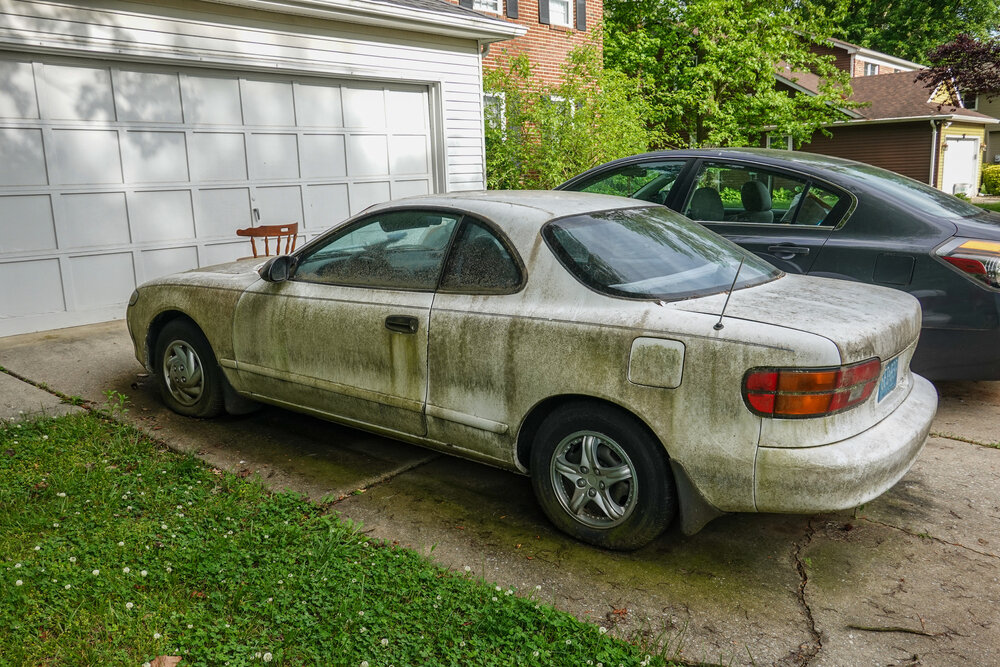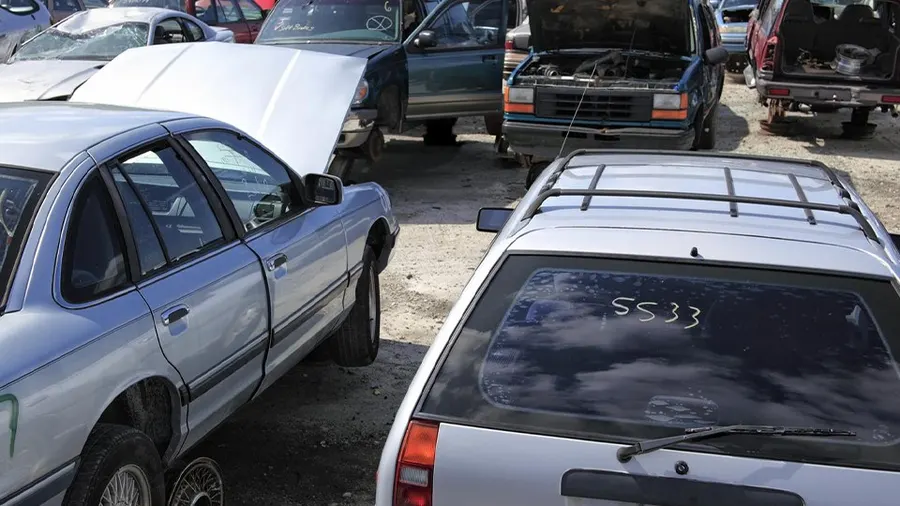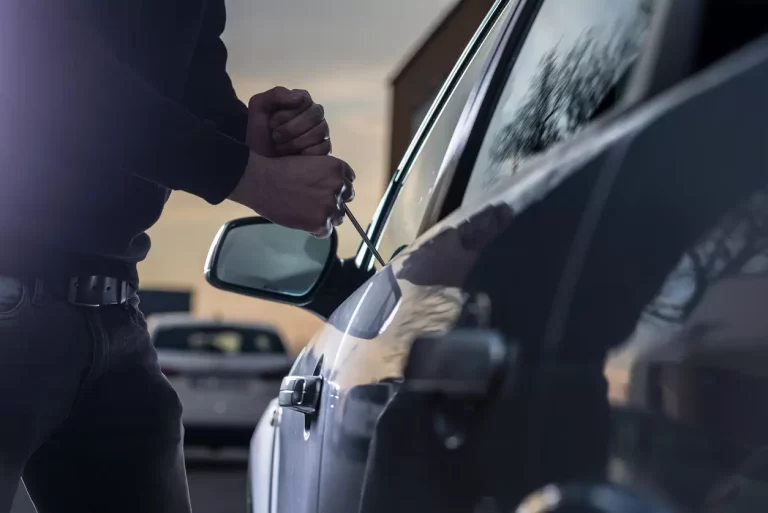How To Junk A Car?
How To Junk A Car?
Junking a car, often referred to as selling a car for scrap, is a process that can seem daunting but can be quite straightforward when you break it down into steps. Here’s how to go about it:
1. Assess the Condition of Your Car:
Determine whether your car is in working condition or if it’s beyond repair. This assessment will help you decide whether to sell it for parts, as scrap, or potentially as a fixer-upper.
2. Gather Necessary Documents:
- The most important document you need is the title of the car. You must have a clear title to sell your car for junk. This proves ownership and allows you to transfer ownership to the junkyard.
- If you’ve lost the title, you’ll need to apply for a duplicate at your local DMV. Some places may also accept a bill of sale along with registration as proof of ownership.
3. Remove Personal Belongings:
Cars often accumulate many personal items over the years. Check the glove compartment, trunk, under seats, and other storage areas to ensure you’ve removed all personal belongings.
4. Look for Valuable Parts:
If there are any new or expensive parts that can be sold separately, you might want to remove them before selling the car. Items like GPS systems, alternators, new tires, and batteries can be sold separately.
5. Cancel Insurance and Return License Plates:
- Make sure to cancel your car’s insurance to avoid paying for a vehicle you no longer own.
- Depending on your state’s laws, you may need to return the license plates to the DMV.
6. Find a Reputable Junk Car Buyer:
- Research local businesses that buy junk cars. Check their reviews and ratings to ensure they are reputable.
- Compare different offers and services. Some companies will offer free towing, while others might deduct the towing service from their offer.
7. Arrange for Towing:
Once you’ve selected a buyer, arrange for the vehicle to be towed. This is typically offered as a free service by most scrap and junk car buyers.
8. Transfer the Title and Get Paid:
- Sign over the title to the new owner when they pick up your car or when you drop it off. Ensure you get a bill of sale in return.
- It’s best to accept cash to avoid issues with bounced checks or other payment problems.
9. Notify the DMV:
Inform your local DMV that the vehicle has been sold. This can usually be done online and will free you from any legal responsibility for the vehicle going forward.
Where To Sell Your Junk Car?
When you’re ready to sell your junk car, there are several options available to you, each with its pros and cons. Here’s where you can sell your junk car:

1. Auto Salvage Yards:
Salvage yards, also known as wrecking yards or scrap yards, are one of the most common places to sell a junk car. They typically dismantle the car and sell the parts or recycle the metal. Ensure you call ahead to get a quote and understand their process.
2. Junk Car Removal Services:
There are services that specialize in buying junk cars directly from owners. They often provide a quote online or over the phone and include free towing. These services are convenient and quick, making them a popular choice.
3. Online Marketplaces:
Platforms like eBay Motors, Craigslist, or Facebook Marketplace can be good places to list your junk car. This might require more effort on your part to manage the listing and negotiations but could potentially yield a better price if you find the right buyer.
4. Local Mechanics or Auto Repair Shops:
Sometimes, mechanics or auto repair shops buy junk cars for parts or to repair and resell. This could be a viable option if your car has desirable parts or could be easily fixed and flipped by a professional.
5. Metal Recycling Centers:
If your car is mostly junk and not worth much for parts, metal recycling centers might buy it for the scrap metal value. This is usually the last resort if the car isn’t operational or has little value beyond its materials.
6. Charitable Organizations:
Some charities accept junk cars as donations. Although this won’t put cash in your pocket directly, you can receive a tax deduction for the value of the vehicle.
7. Parting Out the Car Yourself:
If you have the time and knowledge, you can part out the car yourself and sell the components individually. This often yields the highest return but requires significant effort and space.
How To Sell Your Junk Car for Cash?
Selling your junk car for cash can be a straightforward process if you know the steps to follow. Here’s a guide to help you navigate the sale of your junk car:

1. Evaluate the Condition of Your Car
Determine the exact condition of your car. Is it drivable? What parts are still in working condition? This information will be crucial when negotiating prices with buyers.
2. Gather Necessary Documentation
- The most important document you need is the title of the car, as it proves ownership. If you’ve lost the title, you’ll need to apply for a duplicate at your local DMV.
- Gather any service records and receipts for new parts, as these can increase the value of your car.
3. Remove Personal Belongings
Thoroughly inspect the car and remove all personal items. Check under seats, in the trunk, glove compartment, and any other compartments.
4. Get a Valuation
- You can get an initial idea of the value by using online tools that estimate the worth based on your car’s model, make, year, and condition.
- Call local scrapyards and junk car removal services to get quotes. Be honest about the condition of your car to get accurate offers.
5. Compare Offers
Get multiple quotes to ensure you’re getting a fair price for your junk car. Consider factors like whether they offer free towing, which can significantly affect the net amount you receive.
6. Choose a Buyer
Decide on a buyer based on the best offer and their reliability. Check online reviews to ensure they have a good reputation.
7. Arrange for Towing
If the car isn’t drivable, most junk car buyers will offer to tow it for free. Confirm this service before finalizing the deal.
8. Complete the Sale
- Remove the license plates from the car before it is towed away.
- Make sure to transfer the title to the new owner to legally finalize the sale and release yourself from any future liabilities. Never allow the car to leave your property without transferring the title.
- Receive payment. It’s best to insist on cash to avoid the risks associated with other forms of payment.
9. Notify Your Insurance Company and DMV
- Cancel your insurance policy on the vehicle to stop coverage and avoid future bills.
- Notify your DMV that the vehicle has been sold, scrapped, or donated. This can usually be done online and ensures you are no longer responsible for the vehicle under state laws.
10. Keep a Record of the Sale
Keep copies of the paperwork related to the sale, including a copy of the title transfer and any receipts. This documentation is essential for resolving any future issues that may arise regarding the vehicle’s ownership or use.
Frequently Asked Questions
Can I sell a junk car without a title?
Yes, it is possible to sell a junk car without a title. However, the process can be complex and vary based on local and state laws. It is important to research these laws thoroughly, gather essential car details and get in touch with local junkyards that buy vehicles without titles.
Can I get a replacement title for my junk car?
Yes, if you are unable to sell your junk car due to missing its title, applying for a replacement title is an option. Please note that the process for procuring a replacement title also varies depending on your locale.
Which states allow selling junk cars without titles?
Several states, including but not limited to Texas, Virginia, Kentucky, Louisiana, and Utah, allow junking vehicles without titles under specific circumstances. However, it is crucial to understand their respective stipulations to ensure a smooth transaction.
Why is due diligence important when selling a car without a title?
Due diligence ensures you are aware of local policies and legalities concerning title-less transactions. This not only helps protect you from potential fraud but also may help you earn a better payout for your junk vehicle.
What options are available for disposing of an old car if selling is not possible?
If selling is not an option, you can consider junking the vehicle, especially to junkyards that accept cars without titles. Always be sure to provide necessary registration details to avoid any fraudulent activities or complications during the process.

Hi! I’m Larry Gibbs, studying mechanical engineering with a focus on cars. I really love Ferraris and write blog posts about the latest car stuff. When not studying or blogging, I’m usually on a road trip exploring new places. I also enjoy playing football and watching movies. Life’s an adventure, and I’m all about enjoying the ride!



![How Fast Is Bugatti Chiron? [Top Speed Explored]](https://www.experienceferrari.com/wp-content/uploads/2024/06/02-ss300p-3i4-front-768x432.webp)



